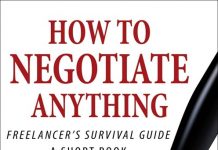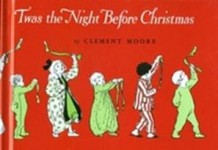 Two great reads came into my inbox this morning, one via Book Riot and one via email, from a blog called Picky Girl, which I have not read. The subject? Reader responsibility. Do they have any? Does being a ‘reader’ obligate one to perform certain tasks on behalf of the author?
Two great reads came into my inbox this morning, one via Book Riot and one via email, from a blog called Picky Girl, which I have not read. The subject? Reader responsibility. Do they have any? Does being a ‘reader’ obligate one to perform certain tasks on behalf of the author?
It was an interesting dialogue. Picky Girl (aka Jenn) began with an author tweet that read ‘I am VERY happy you found my novel at the library, dear reader … but do realize that if only libraries buy books, authors don’t eat.’

After her initial irk at the ‘sarcastic’ tone of the whole thing, Picky Girl put on her investigative boots and set out to prove to this author just how little library sales affect a midlist author’s bottom line. Her finding was that at the largest branch in her city, a typical Lawrence Block novel got checked out just 19 times. When you added in the checkout from other branches, the total rose to just under 30. On average, a typical midlist book will get checked out about 7 times.
Of course, if you multiply that by every city in the country, it does add up to a few hundred books. But we’re not talking about New York Times best-selling levels of losses here. Her conclusion? “The library is typically not going to make or break an author, but an attitude of disdain toward a reader may.”
Andrew Shaffer over at Book Riot addresses authorial directives to readers from a different angle, that of a recent graphic by technical writer Sherry Snider, which is making the social media rounds. The graphic includes a checklist-style list of steps for readers to follow ‘to keep writers fed and writing.’ The steps include tweeting, sharing, writing a review, posting a link and so on.
Shaffer acknowledges that ‘word of mouth’ has been a huge part of the book promotion process even since the paper days, but he bristles at the tone of this particular message: “Snider even suggests that readers “download and print the infographic to use a checklist” when buying books, so they don’t accidentally forget to like, tag, tweet, share, or review their new purchases. When did being a reader begin to feel like such a chore?”
Jenn from Picky Girl is similarly sanguine about such directives. “If I read said book, I do not have an obligation to write about it, tweet about it, tell my book club about it, or talk about it, in general. I do do those things. But it isn’t my responsibility.”
Jenn says she does do her best to support the writers she cares about, because she does want them to keep writing. But ultimately, the process of writing, publishing and marketing is completely in the authors’ hands. And if they do find it not rewarding, or not profitable or not their thing, “it won’t be because Jennifer Ravey in Texas did or did not buy the most recent book they’ve written.”
So what are the responsibilities of the reader? To read. That’s it!

































The reader certainly has no obligation to an author, but, if the reader wants to continue reading the author’s works, particularly a new author, it makes selfish sense to spread the word to reader friends that you’ve found a great read.
I write short reviews of everything I read and post them on my favorite reader listservs. It’s my way of giving back.
But then what do authors owe readers?
I’m not sure I follow what you mean, Greg. Authors don’t owe readers anything, just like readers don’t owe authors anything. No one owes anything to anyone—that’s the point. The only person you owe something to is yourself. (Aside from your family/dependents, of course.)
Marilynn makes a good point: “it makes selfish sense” to spread the word about a writer whose work you enjoy. But no—no one owes anything to anyone for any reason in this scenario. It is no one’s responsibility to keep a writer “writing and fed” except for the writer him/herself. And anyone who claims otherwise is living in a very backwards fantasy word. Full stop, son.
Greg M. said, “But then what do authors owe readers?”
A damn good read, perhaps?
@ Greg and Dan.
I think authors DO owe buyers of their book something: a well-written book that is properly formatted and that has few, if any, errors. I do not think there is an obligation on a reader to buy an author’s book and the author owes something only to the buyer of the author’s book.
The issue is whether readers have an obligation to buy the book as opposed to borrowing it from the library.
My questions to would run along these lines: Does the author participate in the Amazon KDP program? Does the author give Amazon any exclusivity at all? Does the author offer 5 free days on Amazon? Does the author offer 5 free days to non-Amazon book buyers, too? Can Amazon prime members borrow your book? My questions would be along those lines.
If an author chooses to exclude some of the market, then the market certainly owes the author nothing. If the author makes his/her book available for borrowing on Amazon, then I think the author has no basis for complaint if other readers choose to borrow instead from their tax-dollar supported library, which has bought the book.
Quite frankly, I have never heard of Sara J. Henry and I would be very reluctant — no, I simply wouldn’t — spend the money she asks for her books, gambling that I would like her writing. Even her Kindle versions cost $12, which is large chunk of money to gamble on an unknown author these days. Her best bet is to encourage library borrowing and hope that some of the borrowers think enough of her writing to spend $12 for her next ebook.
What do writers owe readers? Here’s a few.
A well-crafted book.
A plot and characters that surprise and have depth.
Worldbuilding that is competent and isn’t ignored for author convenience.
Honest plotting and well-planted clues.
Following genre obligations. If it’s a romance. that means the two characters should end up together. If it’s a mystery, the murder should be solved. Etc. Etc.
If you want to dance to the tune, you have to pay the piper. You just can’t tell others about how much fun you had afterwards.
Does anyone else remember King’s early ebook experiment with the Plant serial? You could download it for free, but if he didn’t get enough payments he’d stop writing.
People download but they didn’t pay. I don’t know what people were thinking but maybe it was saying how great the writing was so he get more readers and some of them would pay – a game of kick the can. True to his word, King stopped writing the story. Now if people did pay, he would have had to finish the story.
I never download the story because I knew I didn’t way to pay.
Joanna –
Thanks so much for such an interesting post. I think my post (and comments) eventually focused more on library reading than reading in general, but reading and responsibility are two things I take very seriously.
As I mentioned, yes, if I really want to at least feel as though I’ve done my part in additional support for the author (buying the book being the main thing), I can go above and beyond. But again, it’s above and beyond. There is no duty.
I’m glad, though, that you do take the research a step further regarding library checkouts. I hate finding holes in my arguments, but I wish I had had time to actually do the math. But, of course, much of that is individualized and dependent on royalties anyway.
Interesting conversation!
If I had to write a review about all the books I read there would be quite a few complaining about improbable plots, unrealistic characters, woeful lack of grammar, appalling spelling and terrible formatting.
Demanding authors should be prepared to get what they ask for. All books do not suit all readers and a bad review is quite likely.
On a personal note, I don’t know Sarah’s work, and after reading this I never will.